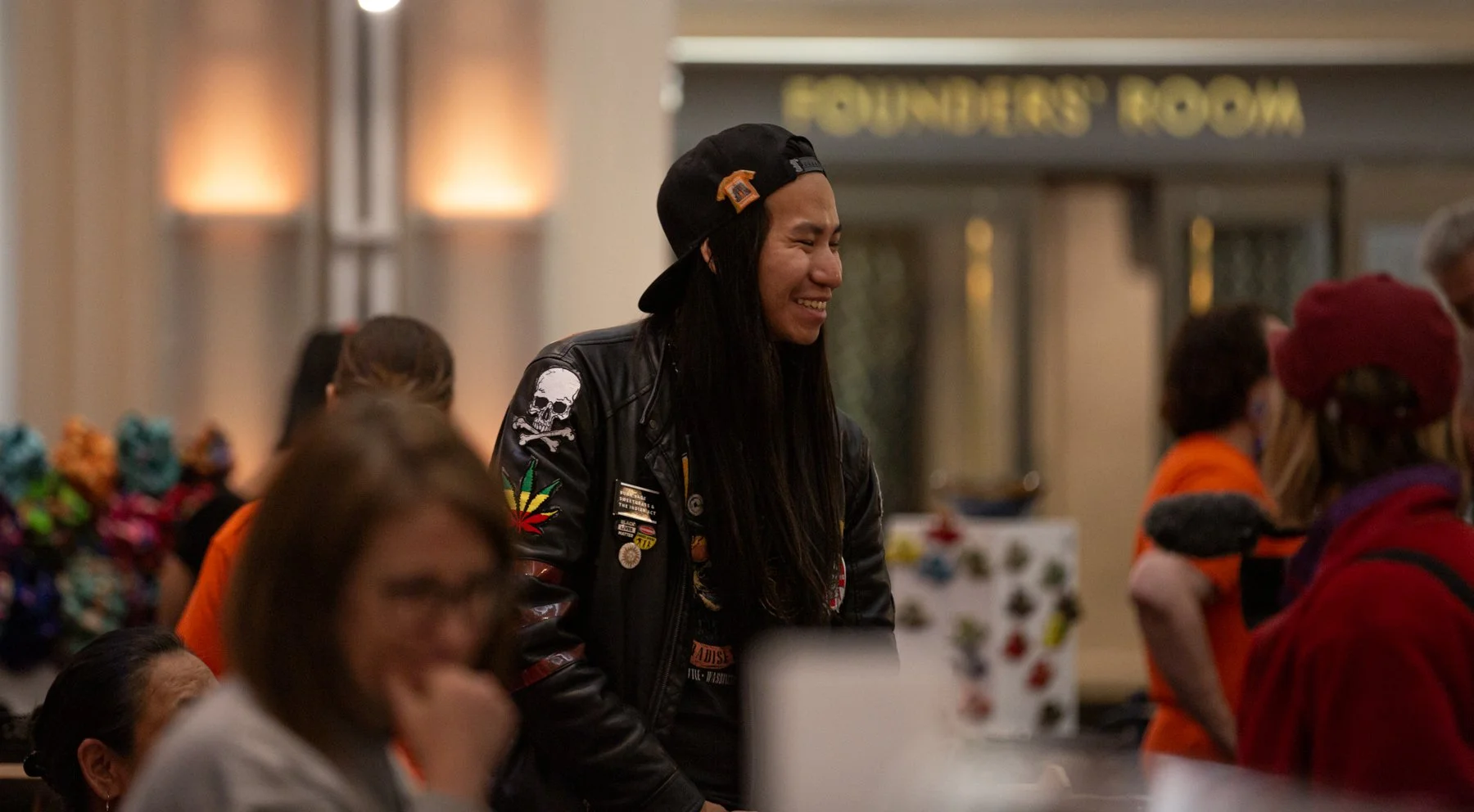Beyond National Day for Truth and Reconciliation
““Do the best you can until you know better. Then, when you know better, do better.” ”
Most of us settlers were not educated about the truths of the past –– our complete history –– in school. We didn’t know. At least we didn’t know, then. Today, we should know better, or at least want to know. If you’re not sure where to start, visit the National Truth and Reconciliation website. Through the work of the Truth and Reconciliation Commission (TRC), the full report as well as shorter summaries, calls to action, and other supporting documents are in the public domain, available for free.
Arts Commons continues to build awareness of the past and understand the impacts of colonialism. It requires a long-term commitment to listen and learn, an acceptance of the discomfort of not knowing the answers, and the humility and strength to make mistakes. So, while the TRC reports are a good start, reconciliation requires a paradigm shift in how we think and engage with each other and with Indigenous peoples. According to the Truth and Reconciliation Commission (TRC), reconciliation “requires that the paternalistic and racist foundations of the residential school system be rejected as the basis for an ongoing relationship. Reconciliation requires that a new vision, based on a commitment to mutual respect, be developed. It also requires an understanding that the most harmful impacts of residential schools have been the loss of pride and self-respect of Aboriginal people, and the lack of respect that non-Aboriginal people have been raised to have for their Aboriginal neighbours. Reconciliation is not an Aboriginal problem; it is a Canadian one.”
National Day for Truth and Reconciliation (NDTR) is one of 365 days that we can choose to reflect on our past, on ourselves, and on our place in this world. It is a time that we can set our intentions and hopes for the future. It is not meant to promote settler guilt. Guilt does not motivate change. Rather, it is an opportunity to discover the threads that bind us and recognize that despite preconceived notions ingrained over centuries, there is much that we can learn from Indigenous peoples, about reciprocity, about the concept of time, and about respect for all living beings. And when we open ourselves to that learning, we see the beauty that exists in Indigenous cultures and traditions.
With this in mind, on Monday, September 30th, Arts Commons invited Calgary to engage in the active process of truth and reconciliation by connecting with local artists through the Indigenous Makers Market and gallery tours and bringing the public together to hear the truths of the past directly from Indigenous Elders (all residential school survivors or family members of survivors), through the Elders Story Project. As the Elders Story Project is an Elder-led and trauma-informed initiative, our role was to provide the space, to promote the day’s events, and to support the Elders in their journey to healing.
The day began with the Indigenous Makers Market, curated by Authentically Indigenous, in the Jack Singer Concert Hall lobby. At the same time, Indigenous artists led guided tours of the current exhibitions featuring their works in the Ledge Gallery, +15 Soundscape, and +15 Galleries. The gallery tours were booked to capacity, and a third tour was added that day to accommodate those eager to hear from the artists. The tour started with Jared Tailfeathers, multidisciplinary artist and recently published author of the book, The Art of Making followed by Kristy North Piegan, Brendon Many Bears, and Sheila Norris who spoke about their work and collaborations in the Building Bridges and ReconciliACTION exhibit (curated in partnership with Pokaiks Reconciliation Society).
Seeing Indigenous and non-Indigenous people share space, ideas, cultures, and creativity was inspiring. As Dr. Karine Duhamel, an Anishinaabe historian and a member of Opwaaganasiniing (Red Rock Indian Band) in northwestern Ontario stated in her article, Reconciliation: A movement of hope or a movement of guilt?, “reconciliation [is] an invitation to a new and shared future and as a pathway towards a good life, both for Indigenous people and for other Canadians...reconciliation as a movement of hope.”
Given the current social and environmental climate, we all need hope. The resilience of the Indigenous peoples we work with and the beauty of the ceremonies that we have the honour of participating in, as well as seeing the desire for non-Indigenous peoples to listen and learn, gives us hope for a better future for all.
While National Day for Truth and Reconciliation has now passed for this year, there are many more touchpoints and opportunities ahead to immerse yourself in Indigenous knowledge and traditions. As we look inward during the month of November, remembering those who died to protect our rights and freedoms, we invite you to observe November 8, Indigenous Veterans Day. You can learn more at veterans.gc.ca.

















